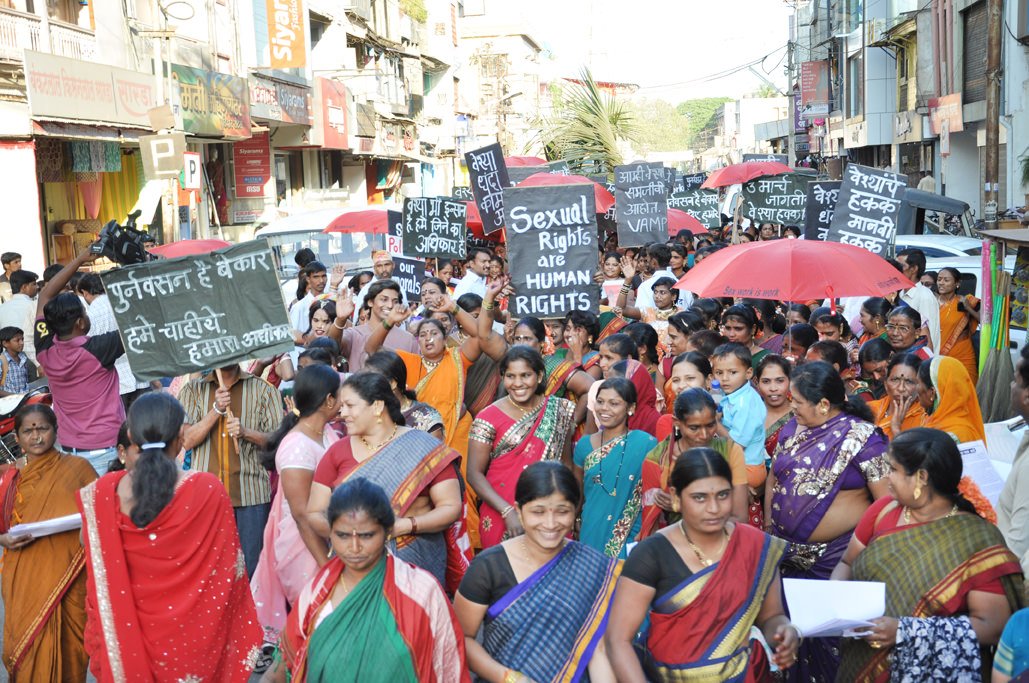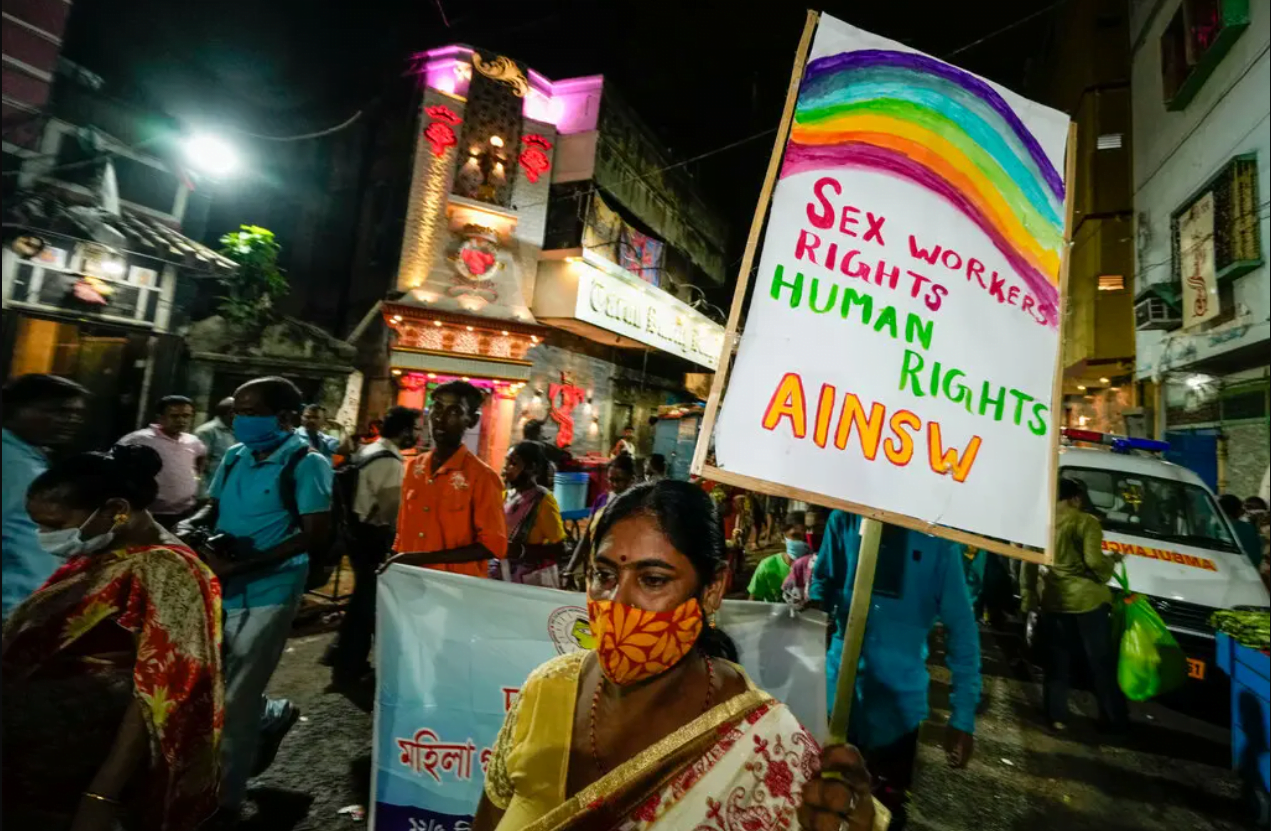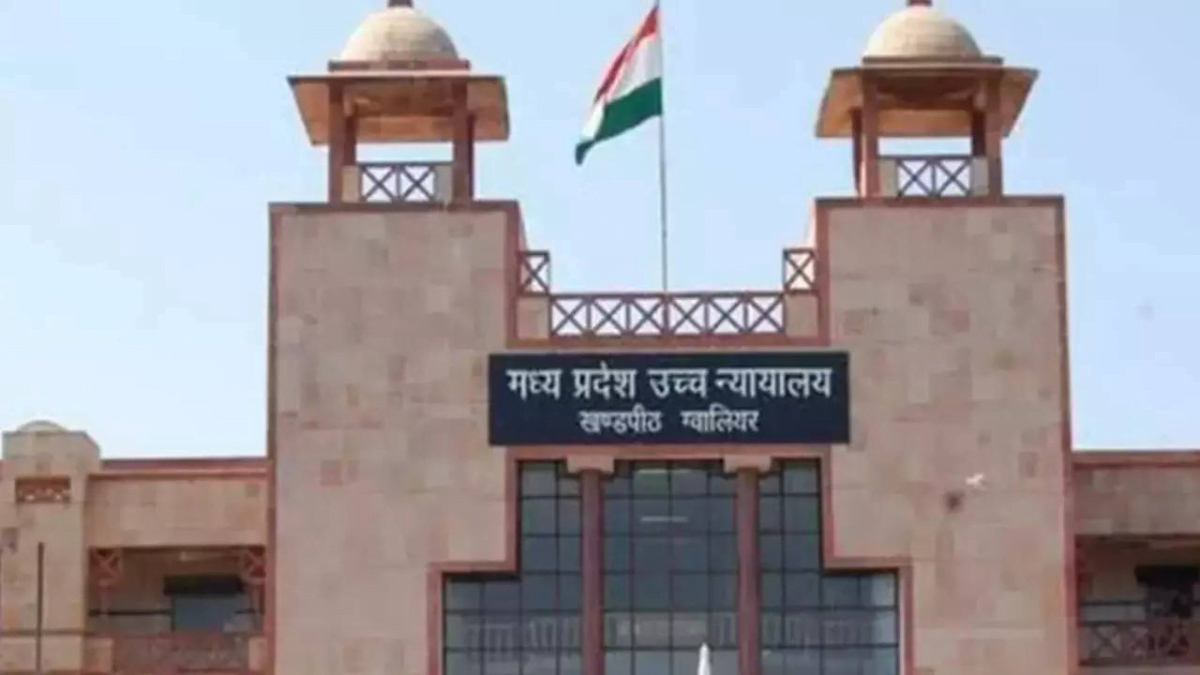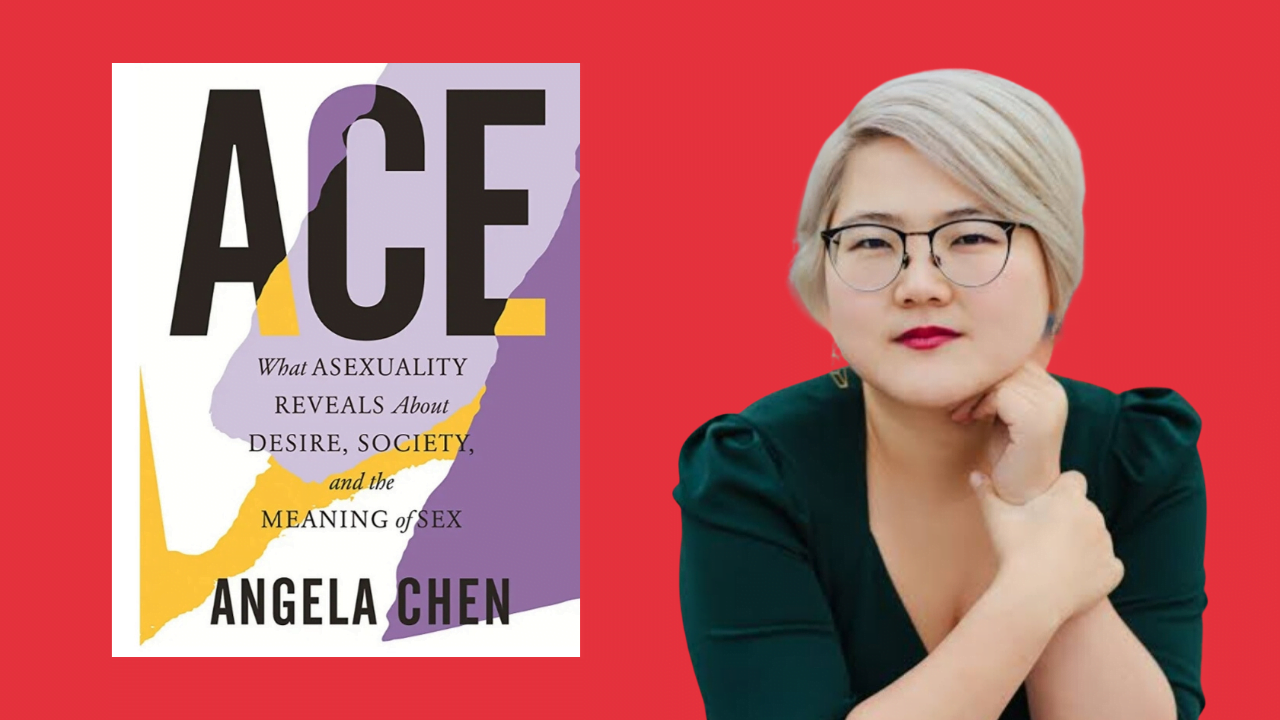Beyond the Violence of Stigma and Victimhood
Open Letter to the delegates of ‘Last Girl First’: Second World Congress against the Sexual Exploitation of Women and Girls (January 29-31, 2017, New Delhi, India) organised by the Coalition for the Abolition of Prostitution International (CAP Intl)
The stellar contribution of the global women’s movement has been to identify the source of women’s victimhood: male domination in the social, political, economic and cultural spheres. Naming patriarchy as the system that subjugated women and denied them access to rights and a life of dignity free from discrimination and violence, enabled a concerted movement towards eliminating women’s inequality. A major element of women’s victimhood was an inability to make choices – about livelihood, place of residence, marriage or maternity.
Choice is mediated not only by gender, but also in a major way by class, caste, ethnicity, region, religion and a host of other factors. Feminists also view consent as a deliberate act, based on various dynamic factors. Importantly, women’s agency began to be lauded and supported by all those who believed that women have the capacity, and the right to make decisions for themselves, and that conditions must be created in order for these choices to work in women’s favour. Such respect for women can be engendered only when all women –regardless of their occupation, caste, class, ethnicity, religion or location– are accorded full rights as citizens and are not excluded from privileges granted by the state, society, community or family.
We find however, that organisations like the Coalition for the Abolition of Prostitution International (CAP Intl) persist in erroneously viewing all women in sex work as victims of trafficking and violence denying them the very right to call themselves workers. However, as evidence from research studies and documented experiences of organised collectives of sex workers shows, sex workers can live a life of dignity, earn reasonable incomes and participate fully as citizens if stigma, discrimination and violence by the society and state are eliminated. CAP Intl, by conflating violence, trafficking and prostitution, muddies the waters and calls for a crackdown on prostitution itself. Through its misleading video, showcasing its campaign ‘End Demand’ to expose prospective clients through graphic images of violence against women, it equates sex work with trafficking and violence. Instead of focussing on the real perpetrators of kidnap, fraud and assault, they seek to “end prostitution” by `frightening’ clients with gory images of dead women.
This conflation of sex work and trafficking not only impinges on the rights of adult sex workers, but also does a disservice to women who have actually been trafficked or want to leave sex work. Additionally, it diverts attention and resources away from genuine anti-trafficking initiatives.
It must be noted that the law in India does not criminalize prostitution or sex work per se. In addition, the highest court of the land, the Supreme Court of India has by judicial order (Budhadev Karmaskar vs. State of West Bengal (2011) 11 SCC 538) called for recognising the dignity of sex workers so that they can pursue a livelihood free from harassment and violence, on par with all citizens of India.
We urge delegates at this World Congress to understand the Indian reality and press for CAP Intl to allocate its considerable clout and resources to support the real victims of trafficking, and desist from calling for the abolition of prostitution, which is not illegal in the land where the CAP Intl World Congress is being held.
Signatories
Individuals
- Laxmi Murthy
- Prabha Nagaraja
- Vrinda Grover
- Vani Subramanian
- Shohini Ghosh
- Geeta Seshu
- Sarojini N. B.
- Anjali Gopalan
- Pramada Menon
- Deepa Venkatchalam
- Amita Pitre
- Meena Saraswathi Seshu
- Japleen Pasricha
- Madhu Bhushan
- Ritambhara Mehta
- Rituparna Borah
- Suneeta Dhar
- Prabhleen Tuteja
- Dr. Mira Savara
- Veena Poonacha
- Farah Naqvi
- Sarojini
- Vinita Sahasranaman
- Manak Matiyani
- S. Jana
- Kalyani Menon Sen
- Feroz Ahmad
- Neelanjana Mukhia
- Shampa Sengupta
- Javid Syed
- Johanna Lokhande
Organisations
- SANGRAM, Sangli
- Saheli women’s resource centre
- Feminism in India
- Nazariya: A Queer Feminist Resource Group
- CREA
- TARSHI
- YP Foundation
- LABIA – A Queer Feminist LBT Collective, Mumbai
- Forum Against Oppression of Women, Bombay
- HWVO Kashmir
Kindly endorse this statement by leaving a comment below with either your name or your organisation or both.





Asia Pacific Network Of Sex Workers
Suroor Mander, Advocate
Shruti Arora
Red Schulte, Support Ho(s)e Chicago
Sunanda Jalote
Bishakha Datta, Point of View
Swarnima Bhattacharya, Women’s Health Line
Yes!
Ipsita Gauri
Ridhima Mehra
Manohar Elavarthi, Bengaluru
Karnataka Sex Workers Union
Tomas Josef
Aditya Naik